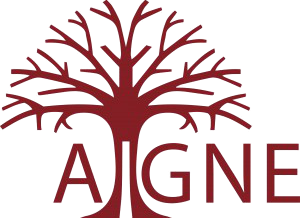Migrant theatre and the aesthetics of identity
DOI:
https://doi.org/10.33178/aigne.vol1.3Abstract
Looking at the terminology developed by criticism to analyze the diverse sociocultural contexts and the various historical phases of literature over the past twenty years, we cannot ignore the emergence of a vast geographical concern. Notions such as nomadism, exile or deterritorialization are multiplying. They all reflect a modern need to explain the major changes experienced by human beings. Spaces are multiplying, expanding, or even existing virtually and it is becoming difficult to define a new sense of being in the world. At the same time, the notion of identity has become more vague, either rendered in simplistic terms or opened to multiple interpretations. The ever-changing notion of character in contemporary theatre represents a precious tool to analyse the multiple notions of identity. In this publication, I offer to demonstrate how Migrant theatre, a dramaturgy based on the inadequacy between human beings and the spaces they live in, deals with identity in postmodern terms. Oscillating between a perfect neatness and an embarrassing vagueness, this new theatre, represented by the works of playwrights such as Marie Ndiaye (Rien d’humain) or Abla Farhoud (Les Filles du 5-10-15c), outlines the hesitations, the confrontations and the experimentations of the world that surrounds us and that shapes us.Downloads
Published
2018-11-23
Issue
Section
Articles
License
For our full Copyright Notice see our Author Guidelines.
How to Cite
Paire, R. (2018). Migrant theatre and the aesthetics of identity. Aigne Journal, 1. https://doi.org/10.33178/aigne.vol1.3


